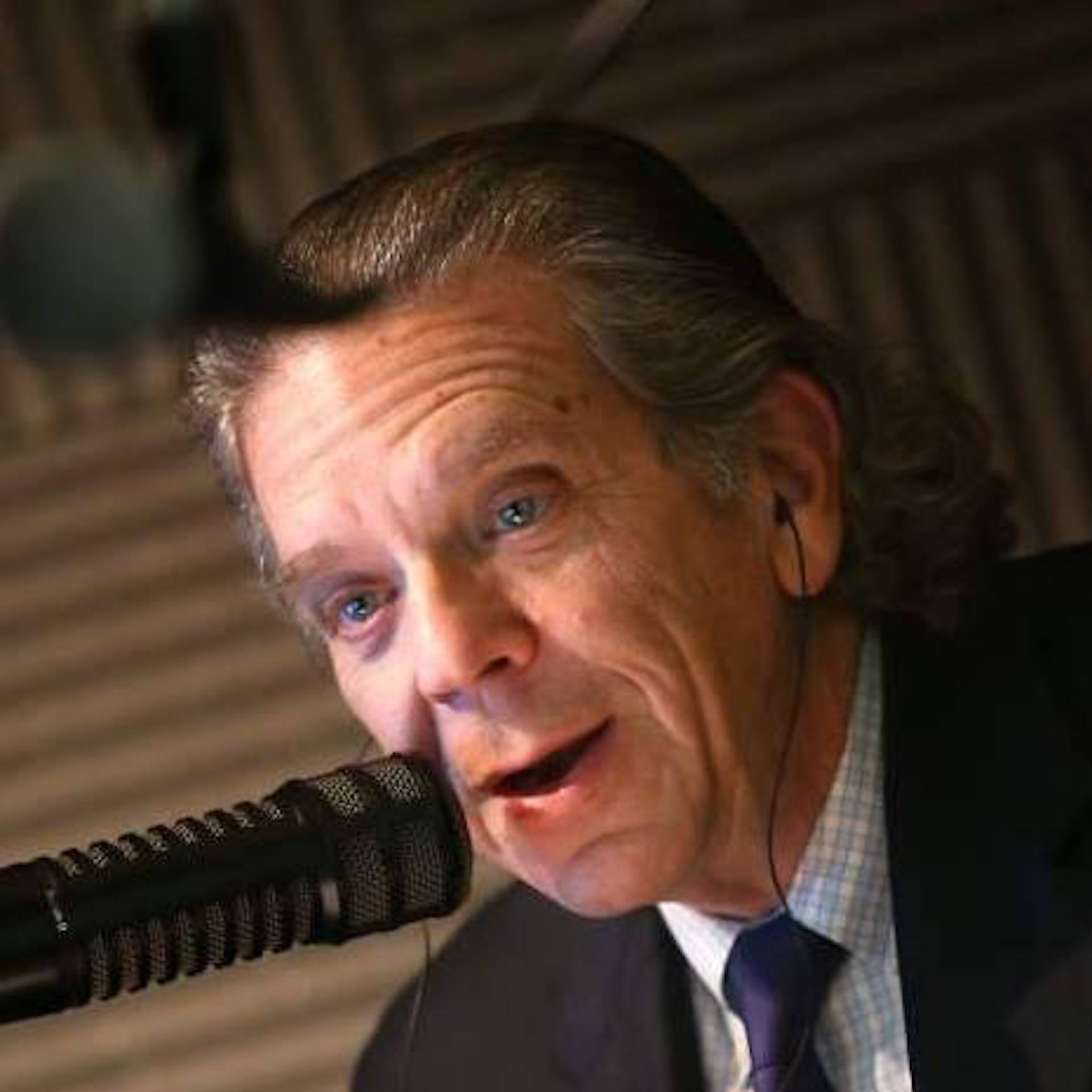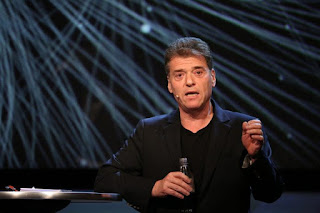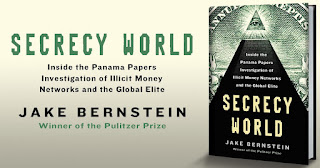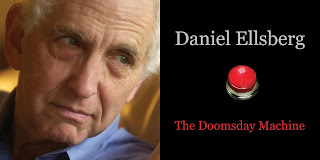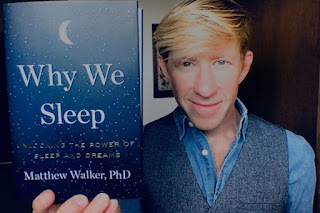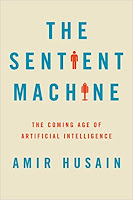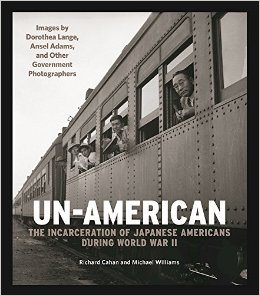Episodes
Tuesday Feb 20, 2018
Who Owns Your Thoughts?
Tuesday Feb 20, 2018
Tuesday Feb 20, 2018
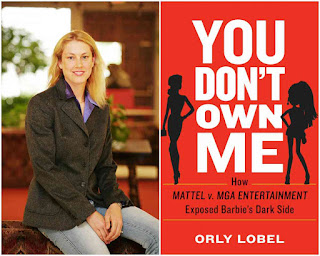 Years ago, the great Dorothy Parker said that the movie business was the only business where the assets went home at night….Well that may have had a ring a truth then, but today in a world where intellectual property and human capital are what makes our economy tick, it seems that the assets always go home at night.
Years ago, the great Dorothy Parker said that the movie business was the only business where the assets went home at night….Well that may have had a ring a truth then, but today in a world where intellectual property and human capital are what makes our economy tick, it seems that the assets always go home at night.
And what they do, what they think about, and what they conceive of when they are home, opens a minefield of issues that are legal, cultural and human. Add to these issues the global world where work is 24/7, where nomadic work patterns are the subject of a NY Times Magazine cover story, and where a single idea can be worth billions and can change the world, the consequences of these issues are enormous.
Distinguished law professor Orly Lobel in You Don't Own Me: How Mattel v. MGA Entertainment Exposed Barbie's Dark Side, tells a story of the toy business that is both compelling in its own right and emblematic of the future of law and work.
My conversation with Orly Lobel:
Tuesday Feb 20, 2018
TRUTH DECAY: The Diminishing Role of Facts in Public Life
Tuesday Feb 20, 2018
Tuesday Feb 20, 2018
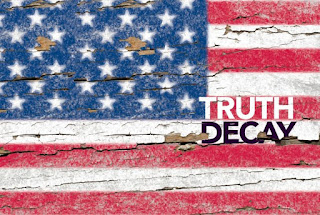 Amidst the cacophony of 24/7 news and information that pours in at us every day, we seem to have lost sight of what constitutes truth, facts and actual information. The signal to noise ratio has shifted overwhelming towards noise.
Amidst the cacophony of 24/7 news and information that pours in at us every day, we seem to have lost sight of what constitutes truth, facts and actual information. The signal to noise ratio has shifted overwhelming towards noise.
Remember, it wasn’t that long ago that we got our information from local papers and three television networks. The original Cronkite nightly news was only 15 minutes long. It was a big and controversial deal when it was expanded to a full half hour.
In many ways it feels like we are in a chicken and egg cycle. Technology has helped provide us with endless sources of “information,” and we are also more polarized than ever. Is it the abundance of options that creates the polarization, or is it the polarization that cause us to see or hear only information to support our cognitive bias? All of this is part of what a recent report by the RAND calls Truth Decay
RAND recently released a 300+ page report on the diminishing role of facts and analysis in American public life. I recently spoke with one of the authors of that report Jennifer Kavanaugh.
My WhoWhatWhy.org conversation with Jennifer Kavanaugh:
Wednesday Feb 14, 2018
Because Capitalism Works: A Conversation with William Rempel
Wednesday Feb 14, 2018
Wednesday Feb 14, 2018
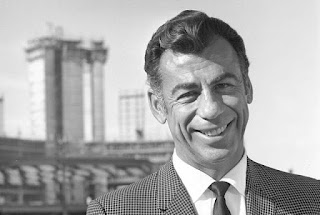 Think about what we value today. What we give rewards for as a society? Now imagine, if you can, a business tycoon who is modest and filled with generosity. Who could gamble a million dollars on one roll of the dice, but whose story is a true Horatio Alger, rags to riches story. A man whose word is his bond. Who eschews self promotion, yet operated in Las Vegas and Hollywood. A man who saw the importance ot the larger world, and helping others in it, while still appreciating all that is American. A man who knew how to fly, but never flew too close to the sun
Think about what we value today. What we give rewards for as a society? Now imagine, if you can, a business tycoon who is modest and filled with generosity. Who could gamble a million dollars on one roll of the dice, but whose story is a true Horatio Alger, rags to riches story. A man whose word is his bond. Who eschews self promotion, yet operated in Las Vegas and Hollywood. A man who saw the importance ot the larger world, and helping others in it, while still appreciating all that is American. A man who knew how to fly, but never flew too close to the sun
This is, in part, the story of Kirk Kerkorian. It's a story told by William Rempel, in The Gambler: How Penniless Dropout Kirk Kerkorian Became the Greatest Deal Maker in Capitalist History.
My conversation with William Rempel:
Friday Feb 09, 2018
The Internet Needs To Grow Up: A Conversation with Andrew Keen
Friday Feb 09, 2018
Friday Feb 09, 2018
At the time of the invention of writing, Socrates worried that it would destroy memory, and undermine the oral tradition. The invention of the printing press worried many. For those old enough you remember, the fear of television was once pervasive. It was the “boob tube,” “the vast wasteland.” We fragmented over other great changes, including the great migration and the move from a rural agrarian culture to an urban industrial revolution.
All of these changes came with great promise and predictive as well as unintended consequences. Why should we think that the Internet, that the digital revolution, would be any different? As someone once said, “history may repeat itself exactly, but it certainly rhymes.”
Andrew Keen has, with an objective eye, been following this history since the dawn of the information age. He wrote about the democratization of information in his book THE CULT OF THE AMATEUR, and he warned us how social media would, rather than brings us together, fragment us and feed into our narcissism.
Now in HOW TO FIX THE FUTURE, he pulls together all of the consequences of tech. He shows us what Joan Didion once said of Southern California, is true of tech, that the dream was teaching the dreamers how to live.
My WhoWhatWhy Conversation with Andrew Keen
Thursday Feb 08, 2018
Deutsche Bank: Where The Dots Of Russiagate Connect
Thursday Feb 08, 2018
Thursday Feb 08, 2018
 If you’re following or trying to follow the Trump-Russia story, no doubt your head is filled with dozens of threads: the Trump Tower meetings; the dossier; the names of countless Russians, mobsters, and oligarchs, and bankers; banks in Germany, in Moscow, Cyprus, and Moldavia; money laundering; real estate deals; hedge funds; indictments; bankruptcies; and a cast of characters orbiting Trump that feels more like the bar scene in the original Star Wars.
If you’re following or trying to follow the Trump-Russia story, no doubt your head is filled with dozens of threads: the Trump Tower meetings; the dossier; the names of countless Russians, mobsters, and oligarchs, and bankers; banks in Germany, in Moscow, Cyprus, and Moldavia; money laundering; real estate deals; hedge funds; indictments; bankruptcies; and a cast of characters orbiting Trump that feels more like the bar scene in the original Star Wars.
How is it possible then to understand it all? Especially if, as Steve Bannon told Michael Wolff, it’s all about following the money. We could all imagine some kind of huge whiteboard or bulletin board in Mueller’s office with arrows, and pictures, and bank logos, and lines, and threads connecting them all together.
WhoWhatWhy.org has published a multi-part series entitled Deutsche Bank: A Global Bank for Oligarchs — Americans and Russians by Martin Sheil, a retired branch chief of the IRS Criminal Investigation Division. His WhoWhatWhy series could easily be seen as part of a preamble or executive summary to the report that Mueller may ultimately deliver to Congress.
My WhoWhatWhy.org conversation with Martin Sheil:
Monday Feb 05, 2018
A Model For The Power of Local Agriculture
Monday Feb 05, 2018
Monday Feb 05, 2018
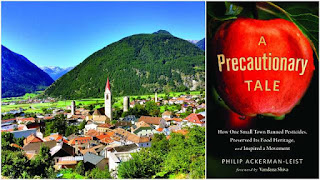 It’s ironic that at a time when our air, water and food are under siege, more people than ever seem to care about the protection of all three. Organic grocery sales have never been higher and local agriculture is undergoing a kind of millennial renaissance.
It’s ironic that at a time when our air, water and food are under siege, more people than ever seem to care about the protection of all three. Organic grocery sales have never been higher and local agriculture is undergoing a kind of millennial renaissance.
Nonetheless, for best practices, we have to turn our gaze to a small town in the Italian alps. It is the first place on earth to fully ban pesticides via referendum, and it represents what may very well be the future of local agriculture everywhere.
Philip Ackerman-Leist tells this story in A Precautionary Tale: How One Small Town Banned Pesticides, Preserved Its Food Heritage, and Inspired a Movement.
My conversation with Philip Ackerman-Leist:
Thursday Feb 01, 2018
A President Who Really Got Things Done: A conversation with Joshua Zeitz
Thursday Feb 01, 2018
Thursday Feb 01, 2018
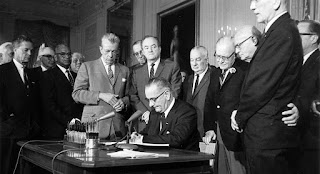 Elections do have consequences and leaders really do matter. Grassroots voices and organizing can bring attention to a problem, but it’s the job of government, of our constitutional process, to put those policies in place.
Elections do have consequences and leaders really do matter. Grassroots voices and organizing can bring attention to a problem, but it’s the job of government, of our constitutional process, to put those policies in place.
As modern history tells us, it’s no easy task. This week we watched a State of the Union speech devoid of ideas, or programs or lofty goals to lift people up, or in the parlance of our times, to solve problems.
It was a far cry from Bill Clinton’s laundry list of small ball in his ‘95 SOTU and even further from the goals once set out by Lyndon Johnson.
So much of the legislative battle today is not about, as some commentators have said, undoing the New Deal, but undoing the remarkable achievements of Lyndon Johnson’s Great Society. It’s a remarkable list that includes medicare, medicai
d, public radio, public television, the voting right act, federal aid to education, consumer protections, creating the Department of Transportation, and the Department of Housing and Urban Development, and the great 1964 Civil Rights Act. All done in five years, while struggling with the disaster that was Vietnam.
Johnson did it all not through executive orders, but through the simple Article One powers of the Constitution. That’s the story that Joshua Zeitz tells in Building the Great Society: Inside Lyndon Johnson's White House
My conversation with Joshua Zeitz:
Thursday Jan 25, 2018
Thursday Jan 25, 2018
 In the US. or anywhere else around the world, when freedom is threatened, when liberty is under siege, it is often the artist that comes to the rescue. Not necessarily in the realm of changing politics, but in reminding us why that freedom is important, inspiring us to remember what matters, amidst the fear and noise of repression.
In the US. or anywhere else around the world, when freedom is threatened, when liberty is under siege, it is often the artist that comes to the rescue. Not necessarily in the realm of changing politics, but in reminding us why that freedom is important, inspiring us to remember what matters, amidst the fear and noise of repression.
In a new book entitled It Occurs to Me That I Am America: New Stories and Art, Jonathan Santlofer, has brought together some of the most profound artists and writers of our time, to do exactly that.
My conversation with Jonathan Santlofer:
Wednesday Jan 24, 2018
The Network vs. The Despot: A Conversation with Niall Ferguson
Wednesday Jan 24, 2018
Wednesday Jan 24, 2018
 Those that study history know that not only is it not static, but that it tends to go though seemingly recurring periods. We’ve seen times where freedom flourishes, times when despots seem to be the flavor du jour, times where great bursts of innovation happen and where darkness and stagnation cast a pall.
Those that study history know that not only is it not static, but that it tends to go though seemingly recurring periods. We’ve seen times where freedom flourishes, times when despots seem to be the flavor du jour, times where great bursts of innovation happen and where darkness and stagnation cast a pall.
Even in our modern day we see the tension between, “I alone can fix it,” and the power of grassroots and social networks to try and bring people together in a common cause.
This idea, the individual vs. the network is, according to esteemed historical Niall Ferguson, one of the most recurring tensions throughout history. He takes us through this remarkable journey in his book The Square and the Tower: Networks and Power, from the Freemasons to Facebook.
My conversation with Niall Ferguson:
Friday Jan 19, 2018
Timing is Everything! A conversation with Daniel Pink
Friday Jan 19, 2018
Friday Jan 19, 2018
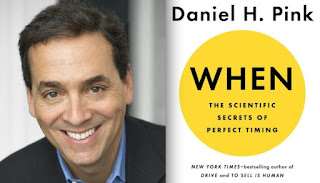 Playing Clue, writing, quizzing our kids or friends, or analyzing data to make decisions, we are all familiar with those key question of who, what and why. And yet the question that goes to the heart of what we actually do and how it will turn out, is often WHEN.
Playing Clue, writing, quizzing our kids or friends, or analyzing data to make decisions, we are all familiar with those key question of who, what and why. And yet the question that goes to the heart of what we actually do and how it will turn out, is often WHEN.
We make dozens of when decisions everyday. Sometimes we jump into something to quickly, sometimes we procrastinate. We schedule the hard stuff in the morning when we are fresh, or some schedule the easy stuff in the morning, to get it out of the way.
We think that most of these decisions derive from habit or intuition. But in fact, modern science and research in psychology, biology, economics and even anthropology, all provide road maps for making our when decisions.
Now bestselling and influential author Daniel Pink takes us into the essence of those when decision in When: The Scientific Secrets of Perfect Timing.
My conversation with Daniel Pink:
Thursday Jan 18, 2018
Does Political Organizing Still Matter? A talk with Gordon Whitman
Thursday Jan 18, 2018
Thursday Jan 18, 2018
 For those that are politically engaged, and are horrified by the current policy decisions being made and enacted by the current administration, it sometimes seems as if the challenge is overwhelming. Can any amount of the traditional forms of protest, and organizing make a dent. Or has technology, the speed of communications and our ever shortening attention spans put us in a post organizing environment?
For those that are politically engaged, and are horrified by the current policy decisions being made and enacted by the current administration, it sometimes seems as if the challenge is overwhelming. Can any amount of the traditional forms of protest, and organizing make a dent. Or has technology, the speed of communications and our ever shortening attention spans put us in a post organizing environment?
In a world in which facts are suspect, life is lived online, only with people that we agree with, and the no ones mind ever seems to change, does protest even matter? Longtime activist and organizer Gordon Whitman thinks it does. His new book is Stand Up!: How to Get Involved, Speak Out, and Win in a World on Fire.
My conversation with Gordon Whitman:
Wednesday Jan 17, 2018
Lawyers, Guns and Money: Understanding the Panama Papers
Wednesday Jan 17, 2018
Wednesday Jan 17, 2018
In the current debate over taxes we here a lot about offshore funds, the repatriation of corporate dollars, and how lowering marginal tax rates will stimulate the economy and bring all this money pouring back into America. Unlikely! Particularly because what we don’t hear about is the almost hundred trillion dollars that is hidden from view, in a complex web of offshore accounts, tax havens, laundered money, corrupt banks and nations that have created a kind of alternative world financial system.
Back in April of 2016 the leaked documents from a Panamanian law firm, that became known as the Panama Papers, began to shed light on this universal flow of this tainted money. More recently the
Paradise Papers, brought this corruption to the doorstep of the White House.
Covering every step of this, has been distinguished journalist and two time Pulitzer winner Jake Bernstein. He details it all, and a lot more in Secrecy World: Inside the Panama Papers Investigation of Illicit Money Networks and the Global Elite.
My WhoWhatWhy.org conversation with Jake Bernstein:
Tuesday Jan 16, 2018
Not Your Father's Non-Profit: A conversation with Kathleen Kelly Janus
Tuesday Jan 16, 2018
Tuesday Jan 16, 2018
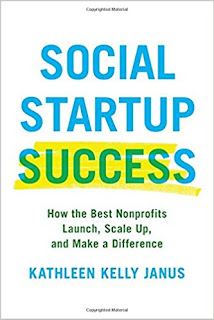 Poll after poll tell us that people have lost faith in government and in big institutions to solve the nation’s or even the world's problems. As that disconnect grows, and it will likely continue to, we are looking more and more to local centric, often non-profit institutions to do the heavy lifting.
Poll after poll tell us that people have lost faith in government and in big institutions to solve the nation’s or even the world's problems. As that disconnect grows, and it will likely continue to, we are looking more and more to local centric, often non-profit institutions to do the heavy lifting.
But what will those non profits look like? As donors today want rapid and measurable results, metrics, and an entrepreneurial spirit and business approach, that will certainly not resemble your father's non-profit.
To help us understand this transition and what may very well be the future of non-profits, as a growing instrument of public policy, I’m joined by Kathleen Kelly Janus, the author of Social Startup Success: How the Best Nonprofits Launch, Scale Up, and Make a Difference.
My conversation with Kathleen Kelly Janus:
Tuesday Jan 16, 2018
"Things Won't Work Out By Themselves" A Conversation with Richard Haass
Tuesday Jan 16, 2018
Tuesday Jan 16, 2018
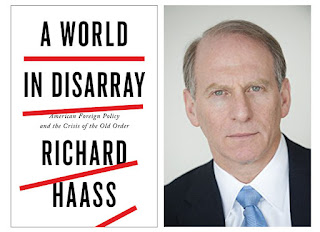 In today’s world it’s not just technology that changes quickly. Just twenty-five years ago, some thought we had reached the end of history. That the end of the Cold War would bring about protracted peace, that the ending of the great power struggle between the US and the Soviet Union would mark a new era. In many ways it did, but not necessarily the one that was anticipated.
In today’s world it’s not just technology that changes quickly. Just twenty-five years ago, some thought we had reached the end of history. That the end of the Cold War would bring about protracted peace, that the ending of the great power struggle between the US and the Soviet Union would mark a new era. In many ways it did, but not necessarily the one that was anticipated.
Just as we’ve seen deconstruction in almost every area of society, so too in foreign policy. The gravitational pull of great powers that held the world together, just as that same force held major industries together, fragmented. Independence, democratization, real time instant communications and commerce, let loose global and destabilizing forces that we are trying hard to sort through. While in business it might mean the end of a company or an industry, in foreign affairs this disarray just might mean the end of the world.
Dr. Richard Haass, the president of the Council on Foreign Relations has served in several administrations and is also the author or editor of twelve books on foreign policy and international relations. His latest is A World in Disarray: American Foreign Policy and the Crisis of the Old Order.
My conversation with Richard Haass:
Monday Jan 15, 2018
The Daniel Ellsberg Story You Won't See In THE POST
Monday Jan 15, 2018
Monday Jan 15, 2018
Somebody asked me recently if I thought that this time that we are living through will be as significant and as profoundly influential as the ‘60’s. I don't’ know the answer to that. What I do know is that there are recurring themes from that period that we seem to be relitigating and reliving.
Race is certainly one. Renewed discussion about Vietnam, press freedom and the threat of nuclear war, are some of the others.
Daniel Ellsberg, was once at the center of these issues and he is still here to provide his wisdom and insights into the way that history maybe repeating itself.
The Ken Burns documentary about Vietnam, which conspicuously did not include a conversation with Ellsberg, and the Steven Spielberg film, The Post, have once again catapulted Ellsberg to the front of our national dialogue.
Most of us know Daniel Ellsberg for the Pentagon Paper which he copied and leaked in 1971. What we don’t know is that Ellsberg was a war planner and nuclear strategist at RAND, and one of the leading thinkers about the role and actual use of nuclear weapons.
Now, after all of these years, he’s written about it in The Doomsday Machine: Confessions of a Nuclear War Planner.
My WhoWhatWhy.org conversation with Daniel Ellsberg:
Tuesday Jan 09, 2018
Trump/Russia from 30,000 Feet
Tuesday Jan 09, 2018
Tuesday Jan 09, 2018
There is an old expression that’s long been part of the training of medical students. It says that if you hear hooves, look for horses, not zebras. The idea is simple. Look first in the most obvious places. Often times the solution is in pain sight and doesn't require some deep, expensive digging.
The same might very well be said of Donald Trump and Russia. Sure we all hear about the complex web, but really there is a kind of elemental simplicity to the story.
Trump came to the attention of Russians as far back as 1987. The Russians, seeking contacts or assets in the US, dangled in front of Trump the prospect of doing business in Russia. They paraded before him oligarchs who he admired, and who he was jealous of.
They keep their eyes on on him for years. He even married two wives from the former soviet bloc. Two wives who grew up behind the Iron Curtain.
He went back to Russia in 2013, by which time planet Trump was surrounded by people like Michael Cohen, Felix Sater, the Agalaroffs, Paul Manafort and dozens and duzens of Russians that had bought property in Trump Tower, or one of his other real estate interests.
When he fell on financial hard times, Russians and particularly Deutsche Bank in Moscow, were there to help with laundered money
In 2016, when he finally ran for president, something he’d been talking about for decades, we know the Russians intervened to help. Paul Manafort, with deep Russian and Ukrainian ties, would, for a time, manage the campaign.
When he won, so many that were circling the mothership Trump would lie about their contacts with Russia. His cabinet would be filled with people like Wilbur Russ, Rex Tillerson and the sister of Eric Prince, all with deep ties to Russia.
All the while he would continue to praise Vladimir Putin. This is the story that Luke Harding brings forth in Collusion: Secret Meetings, Dirty Money, and How Russia Helped Donald Trump Win
My WhoWhatWhy.org conversation with Luke Harding:
Monday Jan 08, 2018
This Man Could Have Prevented 9/11
Monday Jan 08, 2018
Monday Jan 08, 2018
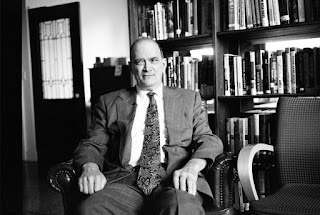 Bill Binney was an NSA analyst whose work was so effective it was shut down. It threatened to derail the gravy train fueled by the kinds of problems he might have solved — including preventing potential terrorist attacks. The contractors and executives riding that train had a motto: “keep the problem going, so the money keep flowing.”
Bill Binney was an NSA analyst whose work was so effective it was shut down. It threatened to derail the gravy train fueled by the kinds of problems he might have solved — including preventing potential terrorist attacks. The contractors and executives riding that train had a motto: “keep the problem going, so the money keep flowing.”
My WhoWhatWhy.org conversation with Bill Binney:
Monday Jan 08, 2018
Monday Jan 08, 2018
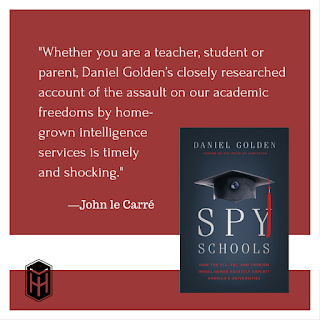 Once upon a time, at the apogee of the cold war, the CIA recruited the best and the brightest from our most elite universities. The likes of George HW Bush, James Jesus Angleton, William Bundy, Porter Goss, and Cord Meyer, all owed their allegiance to God Country and Yale. And Harvard also had its share. These universities were, as someone once referred them, “a nursery of spooks.”
Once upon a time, at the apogee of the cold war, the CIA recruited the best and the brightest from our most elite universities. The likes of George HW Bush, James Jesus Angleton, William Bundy, Porter Goss, and Cord Meyer, all owed their allegiance to God Country and Yale. And Harvard also had its share. These universities were, as someone once referred them, “a nursery of spooks.”
Today, like everything else, espionage has gone through its own creative destruction. Colleges and universities are still at the epicenter of espionage, but it’s all been impacted by globalization, technology, the free flow of international students and professors and information, and yes, 9/11. It’s as if the military industrial-complex that Eisenhower warned us about, is now the military, industrial, intelligence and university complex.
Bringing this all into bold relief is Pulitzer Prize winning author Daniel Golden, in his book Spy Schools: How the CIA, FBI, and Foreign Intelligence Secretly Exploit America's Universities.
My conversation with Dan Golden:
Monday Jan 08, 2018
Where Is Your Money Sleeping?
Monday Jan 08, 2018
Monday Jan 08, 2018
 As the new year begins, we often think about what to do with our money. In a world in which we are more socially and politically divided than ever, in which change is happening at an exponential pace, in which technology may lead us to a worse or a better place, how we invest, how we spend money, and where that money goes, takes on more urgency than ever.
As the new year begins, we often think about what to do with our money. In a world in which we are more socially and politically divided than ever, in which change is happening at an exponential pace, in which technology may lead us to a worse or a better place, how we invest, how we spend money, and where that money goes, takes on more urgency than ever.
Both spending and investing is now more than just part of our economic dialogue. It is a part of our social fabric. How it comes together, and what it accomplishes has profound consequences.
Morgan Simon is a leader in impact investment who builds bridges between finance and social justice. Over the past seventeen years, she has influenced over $150 billion in capital and she recently authored Real Impact: The New Economics of Social Change.
My conversation with Morgan Simon:
Monday Jan 08, 2018
A Look At What A Real President Was Like
Monday Jan 08, 2018
Monday Jan 08, 2018
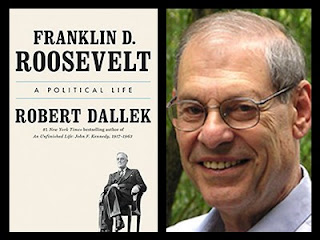 I’m not sure when politics became a dirty word. But there was a time when it was a noble profession. When the best the the brightest sought to serve, and when differences of opinion were about how to better the lives of all people, not just those at the top, or those at the margins, or those in power.
I’m not sure when politics became a dirty word. But there was a time when it was a noble profession. When the best the the brightest sought to serve, and when differences of opinion were about how to better the lives of all people, not just those at the top, or those at the margins, or those in power.
To successfully engage in politics tooks a very special skill set, that was about understanding people and what they wanted, and forming coalitions to compromise and get things done. How far we have fallen from that ideal.
It was Bismarck who said that “politics was the art of the possible.” Few understood this better than the 32nd President of the United States, Franklin Roosevelt. Presidential historian Robert Dallek takes a deep dive into the political Roosevelt, in Franklin D. Roosevelt: A Political Life
My conversation with Robert Dallek:
Tuesday Dec 26, 2017
Our Collective Search for Meaning And What Happens If We Can't Find It
Tuesday Dec 26, 2017
Tuesday Dec 26, 2017
From the time we first enter the world, to the moment we read or listen to the morning news, we are trying to make sense of the world. We are trying to discern patterns, to create a narrative, to fit the puzzle pieces together in ways that make sense. All the while creating the minimum amount of cognitive dissonance, so that we can move forward each day without having a complete nervous breakdown.
And so it is that societies and cultures do exactly the same things as part of a kind of collective effort to finding meaning. Be it in art, as we try to find metaphorical meaning in the equivalent of a grain of sand, or in the worship of religion, money, success or hierarchical achievement. The problem often comes when these patterns we internalize, run headlong into reality.
That’s a part of what I explore with Jeremy Lent as we look at The Patterning Instinct: A Cultural History of Humanity's Search for Meaning.
My conversation with Jeremy Lent:
Tuesday Dec 26, 2017
Is the Keyboard The New F15?
Tuesday Dec 26, 2017
Tuesday Dec 26, 2017
 You may remember that during the cold war, particularly during the Vietnam conflict, we were told that the battle was for the “hearts and minds” of the enemy. We understood that in conflict, propaganda, particularly as told through narrative, was an important tool of warfare.
You may remember that during the cold war, particularly during the Vietnam conflict, we were told that the battle was for the “hearts and minds” of the enemy. We understood that in conflict, propaganda, particularly as told through narrative, was an important tool of warfare.
Narrative, if successful, was there to reinforce the battle. The ultimate expression of this was the phrase, sometimes attributed to both John Wayne and Chuck Colson, that “if you have them by the balls, their hearts and minds will follow.”
Today, in our 24/7 always on, social media saturated world, the objective has changed. Now, the battle through social media and television, for the proverbial hearts and minds, is sometime the goal, in and of itself.
As we’ve seen with Russia in both the Ukraine, and in it’s new cold war with the US, sometimes control of the Twitter and Facebook narrative is enough to create disruption, to change the terms of the conflict itself and ultimately to win. Suddenly, in cold war 2.0, a keyboard has as much power as an F15. That's the reality that David Patrikarakos lays bear in War in 140 Characters: How Social Media Is Reshaping Conflict in the Twenty-First Century.
My WhoWhatWhy.org conversation with David Patrikarakos:
Tuesday Dec 19, 2017
Sleep...It's Not Just For Wimps Anymore
Tuesday Dec 19, 2017
Tuesday Dec 19, 2017
Tune in to the news any day, and there is lots to lose sleep over. Not the least of which is the worry that if we are not sleeping correctly, we will age faster, increase our risk of Alzheimer's and be susceptible to a host of other illnesses.
It’s hard to imagine, that with all of the other crisis going on, how much time and conversation gets devoted to the subject of sleep. It must mean that it’s pretty important. At least Matthew Walker thinks so. He is a professor of neuroscience and psychology at UC Berkeley, the Director of its Sleep and Neuroimaging Lab, and a former professor of psychiatry at Harvard University, and the author of Why We Sleep: Unlocking the Power of Sleep and Dreams.
My conversation with Matthew Walker:
Friday Dec 15, 2017
The World Will Never Be The Same After AI
Friday Dec 15, 2017
Friday Dec 15, 2017
One of the criticisms of Silicon Valley is often that so much talent and engineering is going toward the creation of minor advancements. A new dating app, new forms of banking, or even games.
But all of this belies what’s really going on beneath the surface, in the world of Artificial Intelligence. A world that conjures up a whole host of fears and confusion. Perhaps it comes from too many science fiction movies, or maybe it’s just the fear of the ultimate change and loss of control. Either way, it is coming in every aspect of our lives. We can choose to have the conversation now, or complain, protest and get angry later.
One of the people leading the way in this arena is Amir Husain. He is a serial entrepreneur and inventor, and the author of The Sentient Machine: The Coming Age of Artificial Intelligence.
My WhoWhatWhy conversation with Amir Husain:
Tuesday Dec 12, 2017
The Joys of Refugees
Tuesday Dec 12, 2017
Tuesday Dec 12, 2017
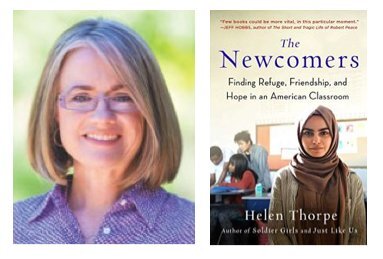
In our hyper partisan and over politicized culture, we’re always quick and anxious to talk about DACA, Dreamers, immigration, deportation, etc. Too often even the most well meaning stories are often lost in the weeds of policy and politics.
What we often forget, or can’t personally understand, is that all of this is about real people. About kids who are caught up in events they can’t control while getting impressions of how they are accepted or not as refugees. The result will shape how they grow up, what they will always believe about this country.
Even in the best of environment refugee resettlement is hard work. Although as my guest Helen Thorpe show us, in her book The Newcomers: Finding Refuge, Friendship, and Hope in an American Classroom, it should be filled with joy.
My conversation with Helen Thorpe:
Monday Nov 27, 2017
Joan Didion: The Center Cannot Hold
Monday Nov 27, 2017
Monday Nov 27, 2017
 There are many writers that reflect a particular time, place and style. Tom Wolfe, Faulkner, Norman Mailer, to name a few. Each conjures up a specific time and place.
There are many writers that reflect a particular time, place and style. Tom Wolfe, Faulkner, Norman Mailer, to name a few. Each conjures up a specific time and place.
It’s very rare that a great writer spans both places and decades. Joan Didion is that rare exception. Be it New York or California; the upheaval of the 60’s, or the aging baby boomers of the present, who must deal with death and grief. Joan Didion has captured it all with precision, insight and the poet's gift for defining the world in a grain of sand.
Never before has there been a documentary about Joan...until now. Until Griffin and Annabelle Dunne have given us The Center Cannot Hold. It comes to Netflix on October 27th.
My conversation with Griffin Dunne:
Monday Nov 13, 2017
Chris Matthews on Bobby Kennedy
Monday Nov 13, 2017
Monday Nov 13, 2017

 Forty nine years ago, on June 5th 1968, the world shifted on its axis. The assassination of Bobby Kennedy, after his victory in the California primary, changed politics forever. It’s might not be too far fetched to say that had Bobby survived, our politics and our country might look very different today.
Forty nine years ago, on June 5th 1968, the world shifted on its axis. The assassination of Bobby Kennedy, after his victory in the California primary, changed politics forever. It’s might not be too far fetched to say that had Bobby survived, our politics and our country might look very different today.
Sydney Schanberg, the great reporter, once told me in an interview that he thought Vietnam and the 60’s represented the end of consensus politics in America.
Since that time we have been searching for the politician or the leader that could bridge that divide. The irony has been that in a time of polarity, it’s been impossible for that leader to emerge. So we look back to what might have been. And when we do, the image, the mythology and the reality of Bobby Kennedy rises as an apparition from the body politic.
Why? What was it about Bobby that made us think he was different?
This is where Chris Matthews takes us in Bobby Kennedy: A Raging Spirit.
My conversation with Chris Matthews:
Sunday Feb 19, 2017
The Refugee Crisis and the Failure of Humanity
Sunday Feb 19, 2017
Sunday Feb 19, 2017
 When we talk about the refugee crises in Syria, we are really only talking about a small fraction of the world's refugee crisis. Hundreds of millions of people throughout the world are affected by armed conflict and genocide. Refugee populations come from Afghanistan, Iraq, Bosnia, Guatemala, Sri Lanka and more.
When we talk about the refugee crises in Syria, we are really only talking about a small fraction of the world's refugee crisis. Hundreds of millions of people throughout the world are affected by armed conflict and genocide. Refugee populations come from Afghanistan, Iraq, Bosnia, Guatemala, Sri Lanka and more.
It’s hard for most of us to even imagine the what these people are willing to endure and the grief and trauma they face. In a time of asymmetrical warfare, they are the new face of war.
Kenneth Miller is an international expert on the impact of armed conflict on civilians. He's a psychologist who been working with war affected communities as a researcher, clinician, and filmmaker. He’s a professor of clinical and community psychology and the author of War Torn: Stories of Courage, Love, and Resilience.
My conversation with Kenneth Miller:
Wednesday Feb 15, 2017
Is Music Just an Escape or an Inescapable Part of Life?
Wednesday Feb 15, 2017
Wednesday Feb 15, 2017
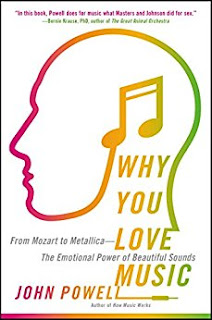 The only thing that may be more pervasive than talk of Russia today is music. Music is everywhere. It seems no space, public or private, is not in some way filled with music. Even sporting events are now enveloped in music.
The only thing that may be more pervasive than talk of Russia today is music. Music is everywhere. It seems no space, public or private, is not in some way filled with music. Even sporting events are now enveloped in music.
In spite of music having been at the cutting edge of technological creative destruction and in spite of the fact that its business models no longer works, it is still omnipresent. One of the few things that has been with us through the ages and is as strong if not stronger today.
So why is music so much a part our lives and what is the seemingly magical power it has for so many people. John Powell explains in Why You Love Music: From Mozart to Metallica--The Emotional Power of Beautiful Sounds.
My conversation with John Powell:
Monday Feb 13, 2017
"Stoking the Star Maker Machinery"
Monday Feb 13, 2017
Monday Feb 13, 2017
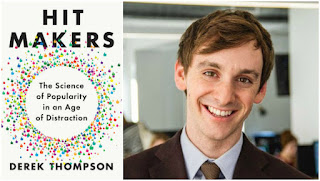 We are in the midst of awards season. The Oscars, the Grammys, the Golden Globes. They are all about both content and popularity. But what is the nexus and separation of the two? To many people, if it’s popular, it can’t be “good.” To others, choosing anything other than the top movies or the top 50 songs on Spotify seems useless.
We are in the midst of awards season. The Oscars, the Grammys, the Golden Globes. They are all about both content and popularity. But what is the nexus and separation of the two? To many people, if it’s popular, it can’t be “good.” To others, choosing anything other than the top movies or the top 50 songs on Spotify seems useless.
What this doesn’t tell us is what drives popularity. Can it be manufactured, or is it the proverbial lighting in a bottle? How real or artificial is popularity?
It’s seems like the perfect time to explore these questions. Senior Editor of The Atlantic, Derek Thompson takes us down this popular road in Hit Makers: The Science of Popularity in an Age of Distraction.
My conversation with Derek Thompson:
Friday Feb 10, 2017
The New Power of Women at Work
Friday Feb 10, 2017
Friday Feb 10, 2017
 While there may be 63 million more cracks in the glass ceiling, the recent election brought into bold relief the challenges faced by women in leadership and in the workplace.
While there may be 63 million more cracks in the glass ceiling, the recent election brought into bold relief the challenges faced by women in leadership and in the workplace.
While electoral politics is not the perfect hothouse for understanding the issues of women and leadership, it certainly reflects back many of the problems, challenges and even opportunities that women face today.
It’s interesting to look at some of the statistics. Women account for a majority of college graduates, but only about a quarter of full professors and university presidents. Almost half of law school graduates are women, but only 17 percent of the equity partners of major firms. Women constitute a third of MBA graduates, but only 5 percent of Fortune 500 CEOs.
So how might this change? Will it be by woman becoming more like men, or will it take a fundamental shift for woman to co-opt the rules and redefine the playing field?
Sallie Krawcheck, one of Wall Street’s most successful women, tells women that what they have to do is Own It:
My conversation with Sallie Krawcheck:
Tuesday Feb 07, 2017
These are the Guy Who Are Changing the World
Tuesday Feb 07, 2017
Tuesday Feb 07, 2017
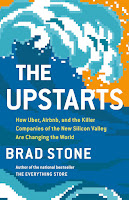
 It’s kind of amazing that we spent a whole Presidential campaign talking about jobs and outsourcing and immigration, when the fact is that all of that is yesterday’s news. The real impact on future jobs, income and how we conduct our lives is not coming from Mexico or China, but from Silicon Valley and from that 7 oz rectangular piece of glass in your back pocket.
It’s kind of amazing that we spent a whole Presidential campaign talking about jobs and outsourcing and immigration, when the fact is that all of that is yesterday’s news. The real impact on future jobs, income and how we conduct our lives is not coming from Mexico or China, but from Silicon Valley and from that 7 oz rectangular piece of glass in your back pocket.
We’ve already watched the disruption of the music business, the travel business and the retail business., Today disrupters like Brian Chesky and Travis Kalanick have disrupted transportation and hospitality in ways that no one could have imagined as recently as just eight years ago.
But disruption has a price; for the disrupter, for society and for those that stand in the way by defending the status quo.
When that happens, it’s always a good story. And that's the story that my guest Brad Stone tells in The Upstarts: How Uber, Airbnb, and the Killer Companies of the New Silicon Valley Are Changing the World
My conversation with Brad Stone:
Monday Feb 06, 2017
The Humanity That's Missing From Our Health Care Debate
Monday Feb 06, 2017
Monday Feb 06, 2017
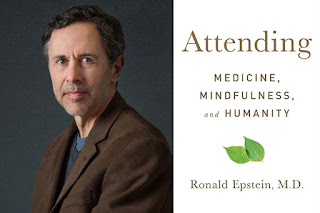 Every day we hear what’s become today’s language of medicine. Time with patients, bending the cost curve, managed care, health saving accounts, primary care, etc. It’s all about medicine as a commodity.
Every day we hear what’s become today’s language of medicine. Time with patients, bending the cost curve, managed care, health saving accounts, primary care, etc. It’s all about medicine as a commodity.
And certainly it is an often finite and limited resource. But lest we forget that it’s also about flesh and blood human beings...both patients and doctors. Your connection to your doctor is simply not the same as your car's connection to it’s mechanic.
Arguably, in that difference lies the soul of the physician, that is true beating heart of health care and that can shape patient outcomes. Understanding this has been the life's work of Dr. Ronald Epstein. He takes us on a journey into that world in Attending: Medicine, Mindfulness, and Humanity
My conversation with Dr. Ronald Epstein:
Thursday Feb 02, 2017
How Real Is The Prospect of This Being the Asian Century?
Thursday Feb 02, 2017
Thursday Feb 02, 2017
 |
 So how many Asians countries have we offended this week? This in spite of the fact that the 21st century may very well be, as many have predicted, the Asian century.
So how many Asians countries have we offended this week? This in spite of the fact that the 21st century may very well be, as many have predicted, the Asian century.
The rise of China and the strength of many other Asian economies take on greater significance as the US enters a period of what could well be political and economic chaos and isolation and Europe faces a rising tide of right wing populism. All of it points to Asia’s promise.
But does it? My guest AEI resident scholar Michael Auslin, a former history professor at Yale, argues not so fast. China and Asia overall face a set of real global and internal challenges that might change the conventional wisdom. He details this in The End of the Asian Century: War, Stagnation, and the Risks to the World’s Most Dynamic Region.
My conversation with Michael Auslin:
Wednesday Feb 01, 2017
It Is Happening Here
Wednesday Feb 01, 2017
Wednesday Feb 01, 2017
 In business we often hear those meaningless four words, “this time it’s different.” Usually it means that it isn’t. That it’s just a delusional way to look at the same old problems.
In business we often hear those meaningless four words, “this time it’s different.” Usually it means that it isn’t. That it’s just a delusional way to look at the same old problems.
In the current political landscape, it certainly seems things are really different. But from what? It’s different from political norms, certainly. But is it all that different from the early 1930’s, as we watched the rise of Hitler and Mussolini in Europe and the populism and racism of Huey Long here at home?
Originally published in 1935, It Can't Happen Here by Nobel and Pulitzer Prize winning author Sinclair Lewis, is a satirical and dystopian look at the rise of fascism in America. It has new and profound relevance today. Sales of this prescient and 82 year old book have skyrocketed as we learn more about it from Dr. Sally Parry, the Executive Director of the Sinclair Lewis society.
My conversation with Dr. Sally Parry:
Thursday Jan 26, 2017
Thursday Jan 26, 2017
 Every day scientists go to work and make discovers, or at least observations, that help make the world a better place.
Every day scientists go to work and make discovers, or at least observations, that help make the world a better place.
The ongoing expansion of our knowledge of chemistry, of physics and of biology should be the holy grail that we look to to make all of us better.
Yet as an overlay to this ideal notion of pure science there are the prejudices, constrains, shames, and social covenants, which to some seem more important than truth.
Author, lawyer and mother Ayelet Waldman recently threw off those constraints to use science and chemistry to make her life better.
She shares that story in A Really Good Day: How Microdosing Made a Mega Difference in My Mood, My Marriage, and My Life.
My conversation with Ayelet Waldman:
Monday Jan 23, 2017
Not Carnage, but Hope and Hard Work
Monday Jan 23, 2017
Monday Jan 23, 2017
 Contrary to recently misplaced words from the President, cities like Detroit and other places in the industrial heartland are not places of carnage. They are and will continue to turn around. Not by dystopian rhetoric, but by the love and hard work and commitment of people like Amy Haimerl and her husband.
Contrary to recently misplaced words from the President, cities like Detroit and other places in the industrial heartland are not places of carnage. They are and will continue to turn around. Not by dystopian rhetoric, but by the love and hard work and commitment of people like Amy Haimerl and her husband.
They took their life savings, moved from a gentrifying expensive neighborhood in Brooklyn and bought an abandoned 1914 Georgian Revival in a troubled Detroit neighborhood. What they accomplished is the brick by brick way that Americans have always and will continue to improve neighborhood life. Their story is America's story. Amy tells that story in Detroit Hustle: A Memoir of Life, Love, and Home
My conversation with Amy Haimerl:
Tuesday Jan 17, 2017
Scenes From a Marriage
Tuesday Jan 17, 2017
Tuesday Jan 17, 2017
 Amidst all the noise of politics, especially on the national stage, we forget that it's still made of up of real people with real lives; complex relationships and evolving marriages
Amidst all the noise of politics, especially on the national stage, we forget that it's still made of up of real people with real lives; complex relationships and evolving marriages
Someone once said that the key to political success was learning how to fake authenticity. One thing we came to learn over the past eight years, is that the Obamas were very real. They were authentic, even if the nature of their lives and yes, even their authenticity changed over the first four years and perhaps even more so during the full eight years.
NY Times correspondent Jodi Kantor in her book The Obamas takes a look inside the Obama family, the Obama marriage and the complexity of a modern professional marriage inside the crucible of the White House. The book has just been updated and is now out in paperback.
My conversation with Jodi Kantor:
Thursday Jan 12, 2017
It Did Happen Here
Thursday Jan 12, 2017
Thursday Jan 12, 2017
Fear is a funny thing. In our personal life, it often holds us back from things we know we should do. In our nation's collective life, fear often makes us do crazy things...to have a kind of national emotional and moral breakdown that feeds on the sum total and power of individual fears.
Such has been the case lately in our election and in our discussions of immigrants and our fear of the other, amidst a rapidly changing world. To better understand where we are, we need only look back to the spring of 1942. A time under FDR, when we rounded up over one-hundred thousand residents of Japanese ancestry, living along the West Coast and sent them to detention centers for the duration of the war. Each lost part of their lives and some would argue that our nation lost a part of its soul.
Richard Cahan captures the sadness of that moment in Un-American: The Incarceration of Japanese Americans During World War II: Images by Dorothea Lange, Ansel Adams, and Other Government Photographers.
My conversation with Richard Cahan:
Sunday Jan 08, 2017
Jane Jacobs Understood that Cities Have Always Reflected The Best of Us
Sunday Jan 08, 2017
Sunday Jan 08, 2017
 More and more of us are moving to cities. Look at any demographic map and it’s clear we are becoming a more urban nation. Cities are the vital link in our cultural, social and economic well being. And no one knew more, or understood cities better than Jane Jacobs.
More and more of us are moving to cities. Look at any demographic map and it’s clear we are becoming a more urban nation. Cities are the vital link in our cultural, social and economic well being. And no one knew more, or understood cities better than Jane Jacobs.
100 years after her birth, her work, her insights and her chronicle of cities is the gold standard by which we judge both the good and bad policy and planning decisions we make.
Robert Kanigel gives Jacobs the biography she has needed in, Eyes on the Street: The Life of Jane Jacobs.
My conversation with Robert Kanigel

